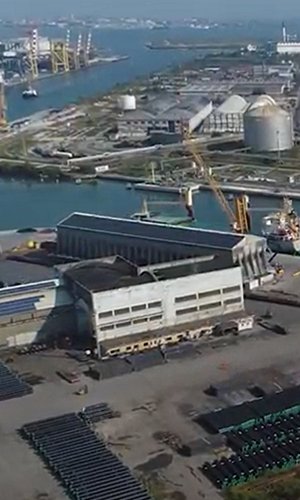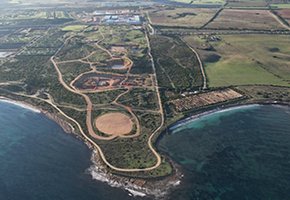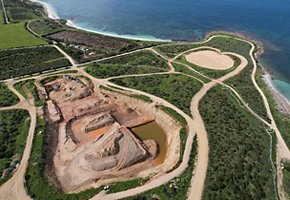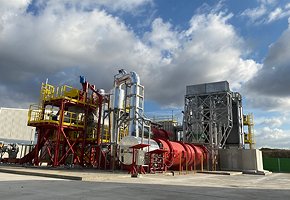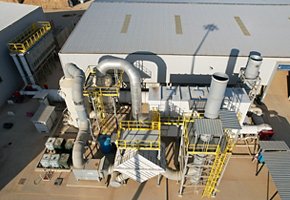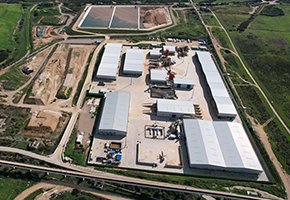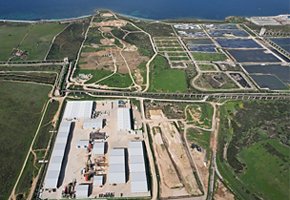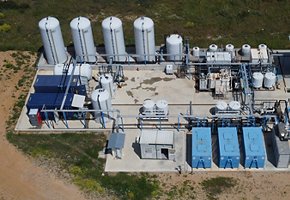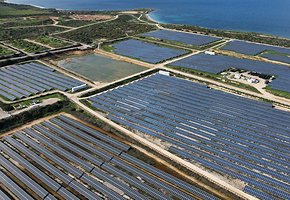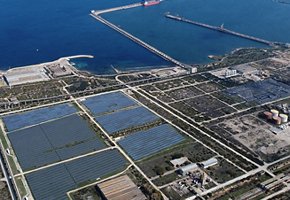The Porto Torres petrochemical hub, one of the largest in Italy, was set up in 1962 by entrepreneur Nino Rovelli’s SIR - Società Italiana Resine (Italian Resin Company) for the large-scale production of phenol, with funding from the Sardinia Rebirth Plan. In later years, olefins, aromatics, chlorinated derivatives, intermediates and synthetic rubbers were added to the production. With the crisis in the chemical sector, in the early 1980s activities were legally transferred to Eni, then a state-owned company, through Enichem, which reorganised and updated them by putting in place new technologies. Between 1994 and 1995, Enichem transferred its fine chemicals production lines to the European Vynils Corporation and Condea Augusta. In 2003, when Enichem changed its name to Syndial (Eni Rewind), the production plants (for styrenes, elastomers and polyethylene) passed to Polimeri Europa (Versalis). Today, Eni Rewind owns over 1,100 hectares of land and is working on the authorised remediation projects of soil and groundwater using sustainable and innovative solutions, such as the construction of a multifunctional platform for on-site soil treatment.
Our Channels
Your business, our energy
Produtcs and solutions for business and customers Italy and abroad
Go to myeni
Voice search

Porto Torres
We are working on soil and groundwater remediation with sustainable and innovative solutions.
1998
Start of the remediation process
SIR Group
Origin of areas
~1,870 ha (of land)
Surface area of the Porto Torres Site of National Priority, of which 1,125 are owned by Eni Rewind
€ 736 million
Environmental costs at 2024
OPEX € 24.7 million
Annual water management costs
2,589,266 m³
Treated water in 2024
543,805 m³
Recovered water in 2024
Our activities in Porto Torres
The environmental activities at the site began during the late Nineties with safety measures, characterisation and the construction of the monitoring network and groundwater treatment plants. In 2010, on approval of the risk analysis, an action plan was defined that takes into account the commitments Eni made with the authorities. The company has also completed the demolition of all the installations and buildings outside the compound, with the exception of sixteen tanks and their interconnections, where works began during the third quarter of 2024, as well as the Tripolyphosphate building, for which the definitive decree by the ministry of Environment is currently pending.
Read about our other remediation projects
We have carried out environmental remediation and regeneration activities in former industrial and brownfield sites.
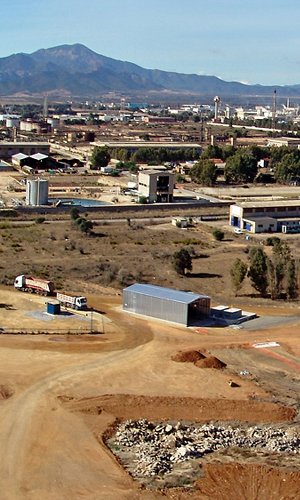
Assemini
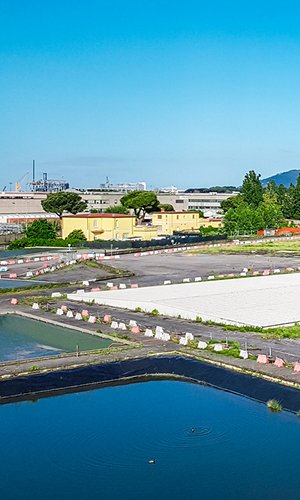
Avenza
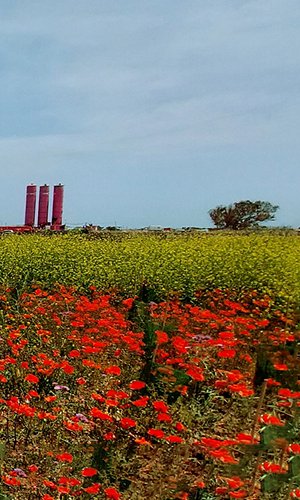
Brindisi
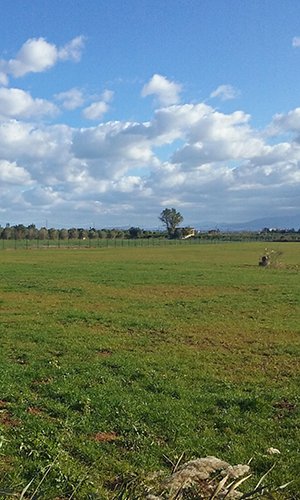
Cassano-Cerchiara
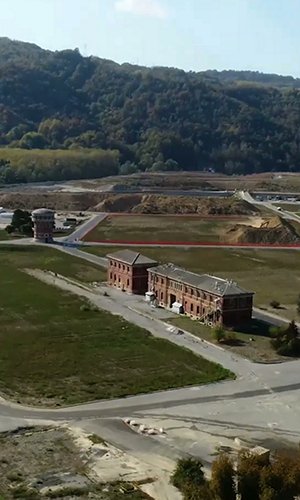
Cengio and Saliceto
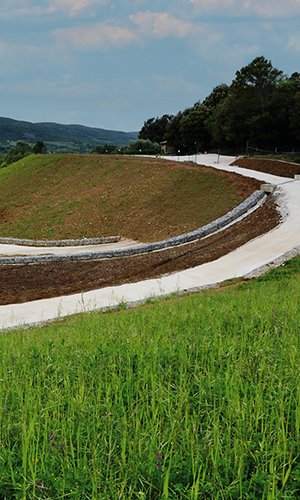
Colline Metallifere

Crotone
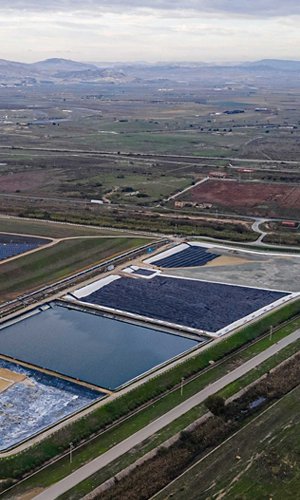
Gela

Ferrara
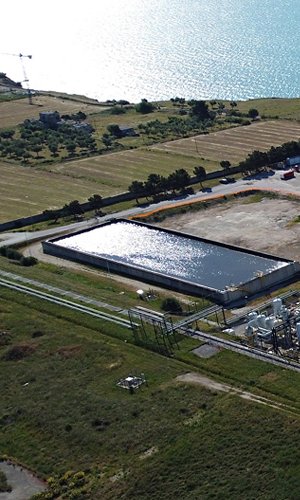
Manfredonia
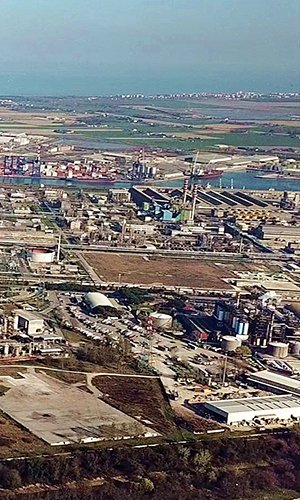
Ravenna
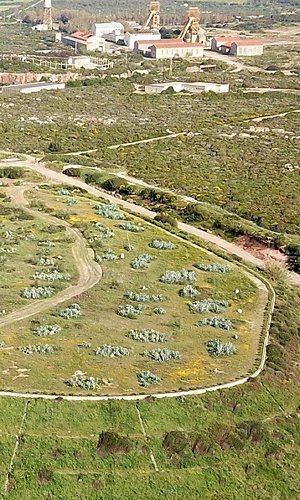
Sa Canna
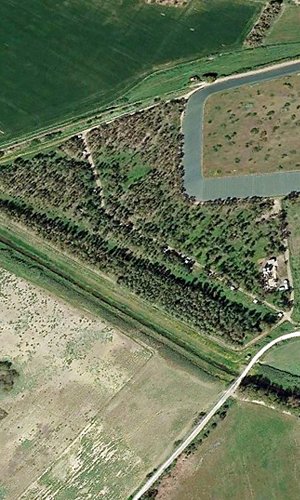
Sa Piramide
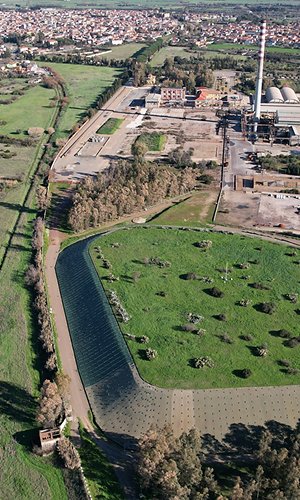
San Gavino Monreale
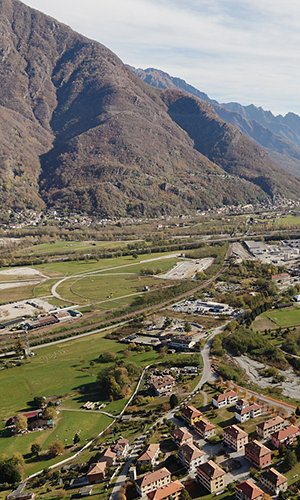
Pieve Vergonte
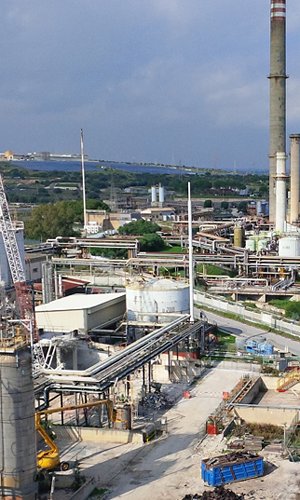
Priolo
